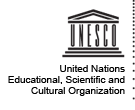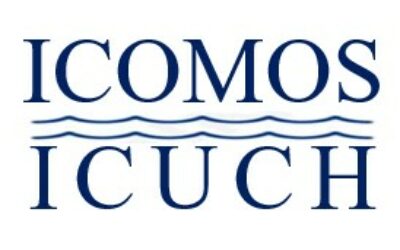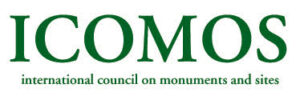Links
International Organizations
United Nations Educational, Scientific and Cultural Organization
 Underwater cultural heritage is enormously rich and has immense potential. In recent years, it has attracted increasing attention from the scientific community and the general public. It represents an invaluable source of information on ancient civilizations and offers an opportunity to further develop diving activities, museums and tourism. Recognizing the urgent need to preserve and protect such heritage, UNESCO elaborated the Convention on the Protection of the Underwater Cultural Heritage in 2001.
Underwater cultural heritage is enormously rich and has immense potential. In recent years, it has attracted increasing attention from the scientific community and the general public. It represents an invaluable source of information on ancient civilizations and offers an opportunity to further develop diving activities, museums and tourism. Recognizing the urgent need to preserve and protect such heritage, UNESCO elaborated the Convention on the Protection of the Underwater Cultural Heritage in 2001.
International Council on Monuments and Sites (ICOMOS)
The International Council on Monuments and Sites (ICOMOS) is an international non-governmental organization dedicated to the conservation of the world’s historic monuments and sites. It has a membership of more than 9500 in over 110 countries, which includes a large number of heritage professionals, across a range of disciplines.
It is the only global non-government organisation of its kind, and its work is based on the principles enshrined in the 1964 International Charter on the Conservation and Restoration of Monuments and Sites (the Venice Charter).
ICOMOS has established international scientific committees on various cultural heritage themes and issues whose membership is drawn from experts and specialists in each subject field, nominated by their respective national committees.
International Seabed Authority
 The International Seabed Authority (ISA) is an autonomous international organization established under the 1982 United Nations Convention on the Law of the Sea and the 1994 Agreement relating to the Implementation of Part XI of the United Nations Convention on the Law of the Sea.
The International Seabed Authority (ISA) is an autonomous international organization established under the 1982 United Nations Convention on the Law of the Sea and the 1994 Agreement relating to the Implementation of Part XI of the United Nations Convention on the Law of the Sea.
The ISA is the organization through which States Parties to UNCLOS organize and control activities in seas beyond coastal state jurisdiction, particularly with a view to administering the resources of these waters.
International Tribunal for the Law of the Sea
 The United Nations Convention on the Law of the Sea was opened for signature at Montego Bay, Jamaica, on 10 December 1982. It entered into force 12 years later, on 16 November 1994. The International Tribunal for the Law of the SEA (ITLOS) was established to deal with disutes arising out the the interpretation and application of the Convention.
The United Nations Convention on the Law of the Sea was opened for signature at Montego Bay, Jamaica, on 10 December 1982. It entered into force 12 years later, on 16 November 1994. The International Tribunal for the Law of the SEA (ITLOS) was established to deal with disutes arising out the the interpretation and application of the Convention.
International Maritime Organisation
 The International Maritime Organization (IMO) is the United Nations’ specialized agency with responsibility for the safety and security of shipping and the prevention of marine pollution by ships. The IMO currently has 169 Member States and three Associate Members and is based in the United Kingdom.
The International Maritime Organization (IMO) is the United Nations’ specialized agency with responsibility for the safety and security of shipping and the prevention of marine pollution by ships. The IMO currently has 169 Member States and three Associate Members and is based in the United Kingdom.
Division for Ocean Affairs and the Law of the Sea – United Nations (UN/OLA/DOALOS)
The Division for Ocean Affairs and the Law of the Sea of the Office of Legal Affairs is mandated by the entrusted by the Secretary-General of the United Nations to fulfil the functions required by UNCLOS.
The Division monitors developments in all relevant areas on matters relating to the law of the sea and ocean affairs. It formulates recommendations to the UN General Assembly and other intergovernmental forums, aimed at promoting a better understanding of the Convention and ensures that the UN has the capacity to respond to requests for advice and assistance from States in the implementation of the Convention. The Division also serves as the secretariat of UNCLOS and provides information, advice and assistance to States with a view to promoting a better understanding of the Convention and the related Agreements, their wider acceptance, uniform and consistent application and effective implementation.
Archaeological Organizations
The Institute of Nautical Archaeology
 The Institute of Nautical Archaeology (INA) has had a long and active history in pioneering technologies and fostering excellence in all aspects of nautical archaeology, from excavation and conservation through to preservation, analysis and publication.
The Institute of Nautical Archaeology (INA) has had a long and active history in pioneering technologies and fostering excellence in all aspects of nautical archaeology, from excavation and conservation through to preservation, analysis and publication.
Society for Historical Archaeology
 The Society for Historical Archaeology (SHA) is the largest organization in the world dedicated to the archaeological study of the modern world. Founded in 1967 the Society promotes scholarly research and the dissemination of knowledge concerning historical archaeology. It has a longstanding relationship with the Advisory Council on Underwater Archaeology (see below).
The Society for Historical Archaeology (SHA) is the largest organization in the world dedicated to the archaeological study of the modern world. Founded in 1967 the Society promotes scholarly research and the dissemination of knowledge concerning historical archaeology. It has a longstanding relationship with the Advisory Council on Underwater Archaeology (see below).
Advisory Council on Underwater Archaeology
 The Advisory Council on Underwater Archaeology (ACUA) has been at the forefront of underwater archaeology since its establishment as the Council on Underwater Archaeology in 1959.
The Advisory Council on Underwater Archaeology (ACUA) has been at the forefront of underwater archaeology since its establishment as the Council on Underwater Archaeology in 1959.
The ACUA serves as an international advisory body on issues relating to underwater archaeology, conservation, and submerged cultural resources management and works to educate scholars, governments, sport divers, and the general public about underwater archaeology and the preservation of underwater resources.
Nautical Archaeology Society
 The Nautical Archaeology Society (NAS) is a non-government organisation, based in the United Kingdom, formed to further interest in underwater cultural heritage. The organisation is dedicated to advancing education in nautical archaeology at all levels; to improving techniques in excavating, conservation and reporting; and to encouraging the participation of members of the public in nautical archaeology at all stages.
The Nautical Archaeology Society (NAS) is a non-government organisation, based in the United Kingdom, formed to further interest in underwater cultural heritage. The organisation is dedicated to advancing education in nautical archaeology at all levels; to improving techniques in excavating, conservation and reporting; and to encouraging the participation of members of the public in nautical archaeology at all stages.
The NAS has developed a nautical archaeology training programme which is recognised around the world and courses are, or have been, run in numerous countries, including Argentina, Australia, Austria, Belgium, Bermuda, Brazil, Canada, Egypt, Finland, France, Germany, Gibraltar, India, Ireland, Italy, Latvia, Mexico, Netherlands, Portugal, South Africa, Sri Lanka, Sweden, Switzerland, Turkey and the USA
The NAS publishes The International Journal of Nautical Archaeology.
Australasian Institute for Maritime Archaeology
 The Australasian Institute for Maritime Archaeology (AIMA) is a non-profit organisation dedicated to the preservation of underwater cultural heritage, and promotion of maritime archaeology conducted in accordance with internationally accepted ethical standards. Based in Australia it has sponsored work throughout Australia, Asia and the Indian and Pacific Ocean regions.
The Australasian Institute for Maritime Archaeology (AIMA) is a non-profit organisation dedicated to the preservation of underwater cultural heritage, and promotion of maritime archaeology conducted in accordance with internationally accepted ethical standards. Based in Australia it has sponsored work throughout Australia, Asia and the Indian and Pacific Ocean regions.
International Projects
Managing Cultural Heritage Underwater Project
 Managing Cultural Heritage Underwater (MACHU) is an international project consisting of eight European Union (EU) partners who, together, are dealing with the management of underwater cultural heritage on a European scale and developing methods for this management to be used in the future by all countries in the EU.
Managing Cultural Heritage Underwater (MACHU) is an international project consisting of eight European Union (EU) partners who, together, are dealing with the management of underwater cultural heritage on a European scale and developing methods for this management to be used in the future by all countries in the EU.
The primary goal of the project is to make information about Europe’s common underwater cultural heritage accessible for academic purposes, to policy makers and to the public. This is being achieved through a GIS-based Decision Support System which simultaneously acts as a database for research, and as a web-based interface for increasing access of our underwater cultural heritage to the public. The benefits for the academic research community to improve the exchange of data and information and thereby develop research networks between different countries.
Maritime Archaeological Museums
Bodrum Museum
 The castle of Bodrum is the home of the Bodrum Museum of Underwater Archaeology, established in 1964. The Museum houses collections from several important local shipwrecks (Cape Gelidonya, Yassiada and Uluburun) whose excavation played an important role in the development of nautical archaeology as a discipline.
The castle of Bodrum is the home of the Bodrum Museum of Underwater Archaeology, established in 1964. The Museum houses collections from several important local shipwrecks (Cape Gelidonya, Yassiada and Uluburun) whose excavation played an important role in the development of nautical archaeology as a discipline.
The Vasa Museum
 The Vasa Museum, opened in 1990 in Stockholm, houses the hull and contents of the almost fully intact Swedish warship, Vasa, which that sank on her maiden voyage in 1628. The whole wreck was lifted, unexcavated, in late 1959.
The Vasa Museum, opened in 1990 in Stockholm, houses the hull and contents of the almost fully intact Swedish warship, Vasa, which that sank on her maiden voyage in 1628. The whole wreck was lifted, unexcavated, in late 1959.


